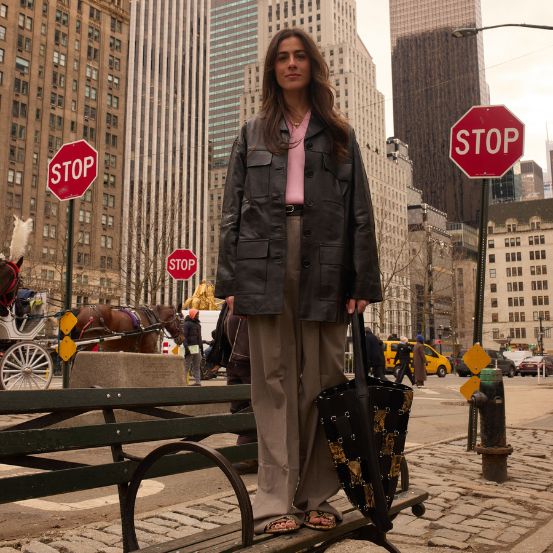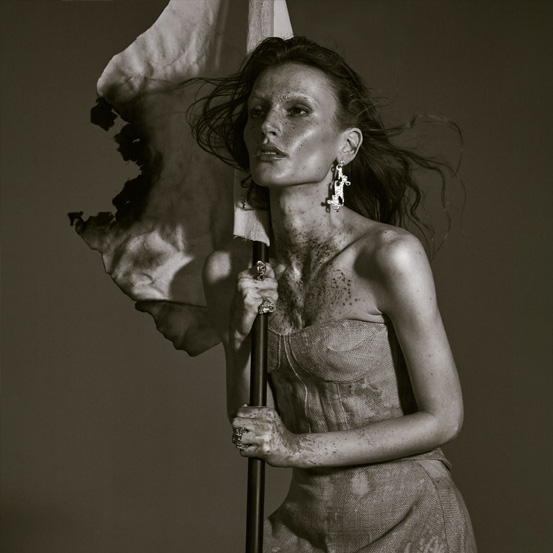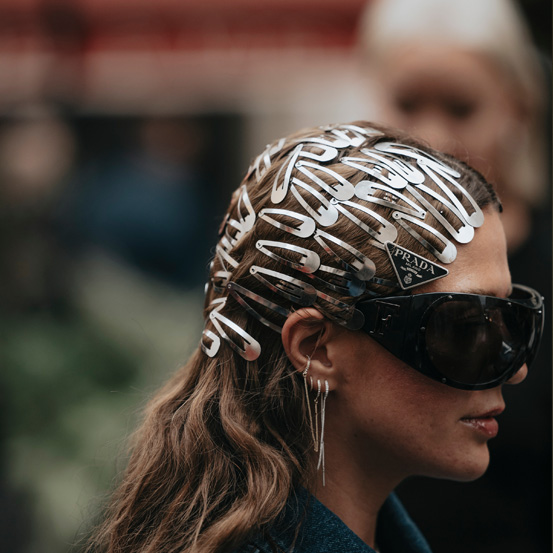We’ve grown used to believing that dreams are the motor of life. That it is for them, and with them, that we walk, even if erratic, towards our future – towards a better future. But when everything around us seems to be collapsing, does it not make more sense to assume, and accept, that it might be the other way around, that life is the one wielding our dreams?
We’ve grown used to believing that dreams are the motor of life. That it is for them, and with them, that we walk, even if erratic, towards our future – towards a better future. But when everything around us seems to be collapsing, does it not make more sense to assume, and accept, that it might be the other way around, that life is the one wielding our dreams?

To figure that out, we would have to ask all small and big business owners who, deprived of carrying on their normal activity, are fighting to keep salaries, and jobs, afloat. To know that, we’d have to ask all those who were forced to close down their restaurants, their bars, their clubs, those who’ve lost all sense of normality, of safety, after the simple rhythm of daily life was taken away from them. To figure that out, we’d have to ask all parents who, from morning to night, become multitaskers to infinity, almost always from their living room, which was once the heart of the household, the soul of the family, and that now serves as both an improvised office as it does a study area, we’d have to ask them, those who try to balance the reality of working from home with the education of their children, the new meal schedules, the inexistent coffee breaks, the stress build-up after weeks on end inside four walls, as we “live like this”. To know that, we’d have to ask all doctors and nurses who, in between shifts, are faced with death at disconcerting speed. To know it, we’d have to as all patients that stopped being patients, because their condition went from being urgent to delayable, even though there is no line to separate the end of a personal emergency and the beginning of a national calamity. To figure this out, we’d have to ask all women, and men, to whom the confinement has brought no peace, but an escalade of aggression, violence, and terror instead. To know that, we’d have to ask all artists, those who climb the stage and those who set it up, those who fill up the neon lights and those who never make it to the technical chart, those who lend their voice to new, and better, worlds, and those who make the existence of those new and better worlds possible, if it is worse to be away from their audience, or if it’s more painful to imagine that they might have to be, out of lack of resources, away from it forever. To know that we’d have to ask every John Doe who had a burnout because this country is not for the faint of heart, to their relative who is on the unemployment fund and that avidly searches for a new path, to their friend who lost everything because of a debt of little over five hundred euros, if hope is still palpable. To know this, we’d have to ask all survivors, of all conflicts, if being one of those who lived to tell the story is at all soothing, and liberating, or if that relief is mixed with the pain, and shame, of being “one of the chosen ones”. To figure that out, we’d have to ask all dreamers, and none could be left out if by now it is still possible to believe that dreams are the motor of life.
Every single one of them would have said yes. Because right now, dreams might not be the leaders of life, but they always will be life’s biggest commander. The History of Mankind is filled with reports about dreams, and their importance and almost all of them are unanimous: to stop dreaming is, somehow, to stop living. “Some say that all nights are dreaming nights. But some also defend that not all of them are, only summer nights. Fundamentally, this isn’t important. What really matters is not the night itself, but dreams. Dreams that men dream at all times, everywhere, during all seasons, either asleep or awake.”[CQ1] As William Shakespeare (1564-1616) wrote in the play Midsummer Night’s Dream. Two centuries later, Victor Hugo (1802-1885) alerted to the fact that: “There is nothing like a dream to create the future. Utopia today, flesh and blood tomorrow.” Marcel Proust (1871-1922) followed his footsteps: “If a little dreaming is dangerous, the cure for it is not to dream less, but to dream more, to dream all the time.” And even Fernando Pessoa (1888-1935) who, by stealing the outpouring of Camões, appeared to have an existence marked by a profound and constant “contempt contentment”, came forward as a dreamer himself: “I have in me all the dreams of the world”, yelled out his heteronymous Álvaro de Campos in Tabacaria, an outburst about the weight of being alive which also happens to be one of his masterpieces. Obvious moments of modern and popular culture aside, though not out of relevancy of the topic – such as “I Have a Dream”, the timeless speech by Martin Luther King (1929-1968), or the iconic song Imagine, by John Lennon (1940-1980) whose chorus “You may say I’m a dreamer / But I’m not the only one” became a hymn for so many generations to come – we come to what brought us here today. The idea that dreams are the commanders of life. Whose idea was that?
António Gedeão (1906-1997) wrote Pedra Filosofal in 1956. The poem, part of his book Perpetual Movement, would later be turned into a tune in 1970, by Manuel Freire, quickly becoming an anthem for the resistance against the dictatorship that then ruled over Portugal. More than 65 years after its publishing, the message remains intact, and its verses, in a frenetic note on everything beautiful in the world, remain as urgent as they did the first time: Gedeão reminds us of things that we sometimes stray from, such as the “tall pine trees that move in green and gold”, or of “the birds that scream in sprees of blue”, and whispers in our ears that dreams are “the canvas, the color, the brush”, as they are “counterpoint, symphony / black mask, magic”, a “landing of a rocket in the lunar surface.” And he finishes with a secret that only a life of enchantment and fervor could ever allow for: “They don’t know, nor dream / that dreams command life / and that every time a man dreams / the world jumps and moves forward / like a colorful ball / between the hands of a child.” And, when confronted with this discovery, with this revelation, what do we do, mere humans, that barely know how to navigate daily life, how to dodge the cycles of the planet, how to face the thoughts that keep us up at night? We say thank you. And we hold on to those words as if they were absolute truths because, in the middle of all the chaos and absurdity, nothing else can save us, nothing else, but dreams.
Disclaimer: I’m not a dreamer. I’ve never been one. I never trusted that dreams, or the idea of them, were the central piece of mine (of our) existence. I always considered dreams, or the idea of dreams, as something ordinary, prosaic, deprived of action or efficiency – something lyrical, yes, something beautiful, no doubt, but something that would only be sustainable within the universe of poetry and fiction. Dreams were never the motor of my life. Throughout my path, all the decisions – good and bad – I ever took, were invariably determined by the belief in something different, which I don’t know what to call, something between reason and destiny. But dreams, no. Or at least so I thought, until the moment I sat down to write this text. It’s practically impossible, almost shameful, to assume that I haven’t let myself command by dreams, to believe in them, dream with them. After all, how does someone that has lived 39 years being a fervorous supporter of a football team that has won the national title twice in that period, can say, in all seriousness, that dreams don’t command (their) life? Is that not the idea, the possibility, season after season, of witnessing a triumph that appears to never arrive, the final proof that, somehow, dreams are the motor of life? After all, how does someone live 39 years, 20 of them with a rare disease, that not even the laic, nor science, understand, remains active, curious, restless, tireless in search for a cure, not for the problem, but a certain inner peace, can say, in all seriousness, that dreams don’t command (their) life? After all, how does someone who live 39 years surrounded by beauty, love, joy, and that can overcome what seemed like an impossible sense of loss, pains that felt never-ending, hurt that seemed to never go away, how does someone, so graced by luck, can say, in all seriousness, that dreams don’t command (their) life? They can’t. They simply cannot. When thinking of this topic, I found myself, one of these afternoons, going for a walk, in search of inspiration. It was shortly after six pm, the sun was setting but, on the horizon, behind some buildings that seemed unreachably far, the sunrays were still luminous, as if it was noon. I found myself wanting to go there, desperately, as if reaching that place would mean I could reach the dream that I, and everyone else, have been trying to reach for quite a while. Minutes went by and I wasn’t able to catch that streak of light. However, that didn’t stop me from trying. And it’s right there, I think, that resides the difference between abandoning the belief that dreams are what rules life and understanding that, in the end, it is life that rules, and controls, the dream. Dreams, like the sun, exist in a period of transition between day and night. This is our night. In no time it will be morning again and we’ll go back to doing what Charles Chaplin (1889-1977) recommended: “Speak without quotes, love without question, dream with reticence, live without end.” Even when everything seems like it is collapsing. Especially when everything seems like it’s collapsing.
Translated from the original article of Vogue Portugal's Creativity issue, published in March 2021.
Most popular
.jpg)
.jpg)
Gracie Abrams em Lisboa: "Foi libertador ser um pouco mais 'barulhenta' nesta fase da minha vida"
13 Feb 2025

A Mango Selection apresenta a sua nova coleção: eis as escolhas de Vicky Montanari
12 Feb 2025
Relacionados
 (3).png)




